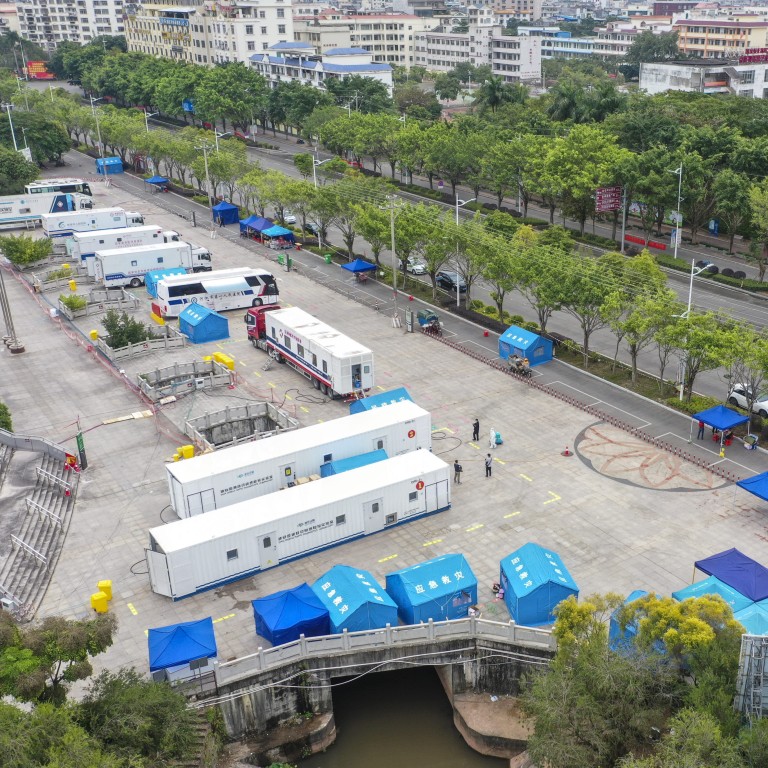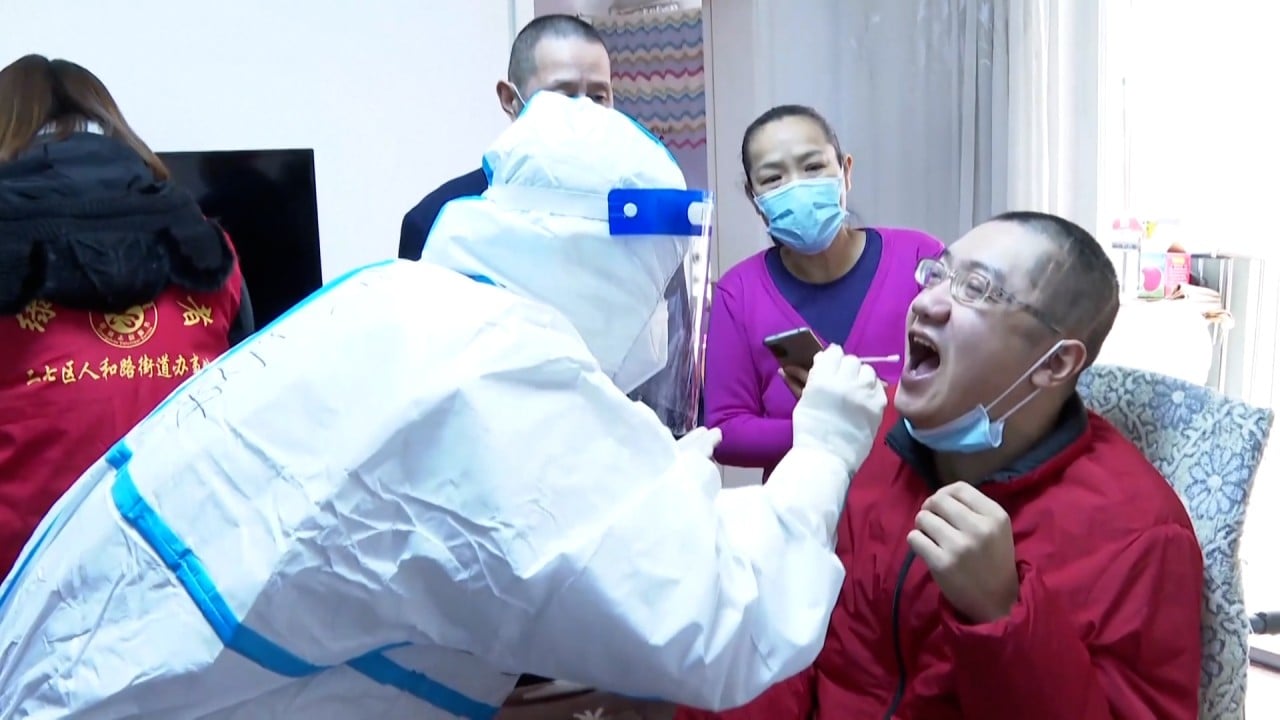
China reopens Vietnam border after Covid-19 caution disrupts trade
- Closure of checkpoints following one Covid-19 case in border city of Dongxing had stranded thousands of trucks carrying goods from Vietnam
- Farm and frozen products to have priority to cross the border, Vietnam says, but some controls will remain in place because of the pandemic
Border clearance had also resumed on January 1 at the Friendship Pass in Pingxiang, and six days later at the Longbang and Pingmeng checkpoints in Baise, according to Vietnam News Agency (VNA).
Dongxing’s 210,000 residents were ordered to stay at home, while clearing of travellers and cargo was suspended. According to the city’s pandemic control office, local authorities had held “multiple rounds of coordination and communication” with their counterparts in Mong Cai since January 3.
“The two sides have agreed on the clearance procedures and pandemic control standards for the entry and exit of people, vehicles and goods,” the office said.
The Vietnamese Ministry of Industry and Trade said that goods, particularly farm and frozen products, would be given priority to cross the border.
“As the pandemic is raging worldwide, customs clearance at all border gates will continue to be tightened,” it said. “Customs processing will therefore not return to the normal rate in the near future.”
Vietnamese Deputy Prime Minister Le Van Thanh also urged local authorities to work with the Chinese side to speed up customs clearance to ease the congestion of cargo trucks before the Lunar New Year starts in early February, VNA reported.
The Chinese border controls have drawn criticism from Vietnam as it struggles to get its export-oriented economy back on track.
In a blow to Vietnamese fruit farmers, China imposed a four-week ban on dragon fruit imports from Vietnam until January 26 after health authorities in Shanxi and Zhejiang provinces said they had found the coronavirus on packaging from the country.
China is Vietnam’s largest trading partner and the largest market for Vietnam’s fruit and vegetables.
According to the Vietnamese government, as of Saturday, more than 3,600 cargo trucks, most carrying fruit and farm products, were stuck at border checkpoints.
The border controls have also ignited discussion in Vietnam over whether the country should step up efforts to diversify its exports, which are heavily reliant on China.
Chinese foreign ministry spokesman Wang Wenbing last week said that the measures China had taken were “necessary” and that the Chinese market was open “to all countries”.



